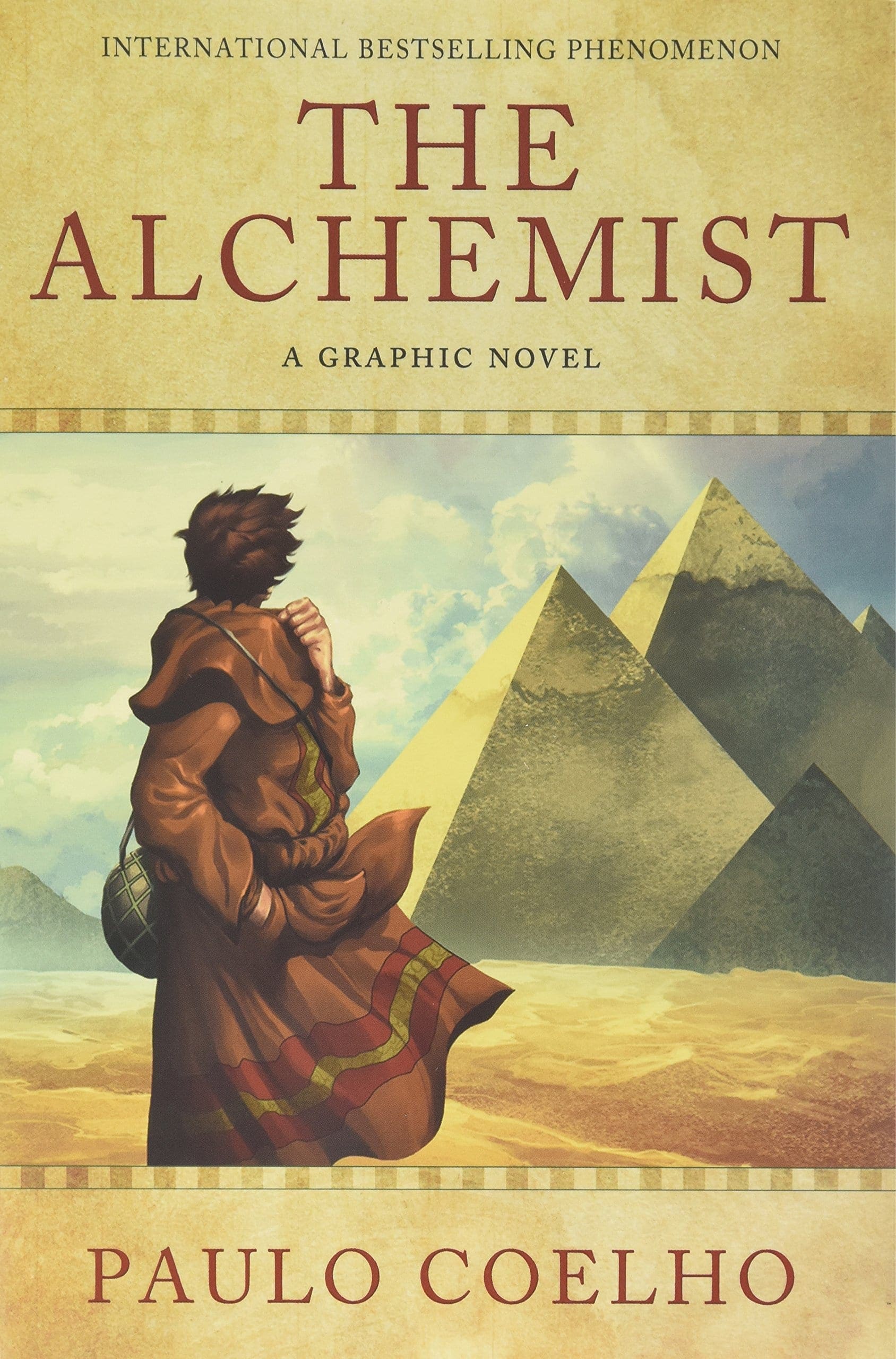
Adventure, dreams, symbols and signs follow the reader like echoes of ancient wise voices in “The Alchemist”, a novel that combines an atmosphere of medieval mysticism with the song of the desert. With this masterpiece, Paulo Coelho states that we shouldn’t avoid our destinies, urging people to follow their dreams, because to find our “personal myth” and mission on Earth is the way to find “God”, meaning of happiness, fulfillment and the greatest purpose of creation.
The novel narrates the story of Santiago, a boy who has a dream and the courage to follow it. After paying heed to “the signs” the boy ventures on his personal, Ulysses-like journey of exploration and self-discovery, symbolically searching for a hidden treasure located near the pyramids in Egypt.
When he decides to go, his father’s only advice is “Travel the world until you see that our castle is the greatest and our women the most beautiful”. On his journey, Santiago sees the greatness of the world and meets all kinds of exciting people like kings and alchemists. However, by the end of the novel, he discovers that “treasure lies where your heart belongs” and that, the treasure was the journey itself, the discoveries he made and the wisdom he acquired.
“The Alchemist” is an exciting novel that bursts with optimism; it’s the kind of novel that tells you that everything is possible as long as you really want it to happen. That may sound like an oversimplified version of new-age philosophy and mysticism, but as Coelho states “simple things are the most valuable and only wise people appreciate them”.
Coelho suggests that those who do not have the courage to follow their “personal myth”, are doomed to live a life of emptiness and misery. Fear of failure seems to be the greatest obstacle to happiness. As the old crystal-seller tragically confesses: “I am afraid that great disappointment awaits me and so I prefer to dream”. This is where Coelho really captures the drama of man, who sacrifices fulfillment to attain conformity, who knows he can achieve greatness but denies doing so and ends up living a life of void.
It is interesting to see that Coelho presents the person who denies following his dream as the person who denies to see God and that “every happy person carries God within him”. However, only few people choose to follow the road that has been made for them, finding God while searching for their destiny and their mission on Earth.
Consequently, is Coelho suggesting that the alchemists found God while searching for the elixir of life and the philosopher’s stone? What is certain is that the symbolism of the text is a parallel to the symbolism and the symbolic language of alchemic; similarly the symbolism of dreams is presented as “God’s language”.
My personal experience of reading this novel was astounding. I enjoyed reading every line of the book because of the beauty Paulo that carved in each one of them, while keeping them utterly simple and blissful. If one wants to understand the meaning of life and what he ought to be seeking from it while keeping things extremely interesting, “The Alchemist” will prove to be a novel that serves that exact purpose, in the most beautiful ways.
This is a novel that may appeal to everybody, because we can all identify with Santiago: all of us have dreams and are dying for somebody to tell us that they may come true. The novel skillfully combines words of wisdom, philosophy, simplicity of meaning and language, which makes it particularly readable and accounts for its bestselling status. It is definitely worth taking out some time everyday out of our busy lives and drowning in the beauty of this well written novel.
